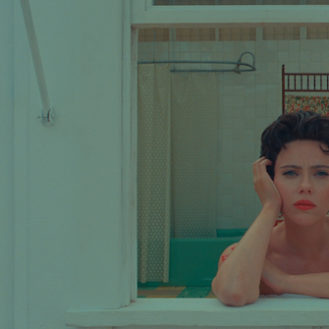Anthony Michael Hall (also serving as a producer) stars as an embittered school administrator in writer/director Nicholas Celozzi’s The Class, an update of the 1985 classic The Breakfast Club (in which Hall played the nerdy Brian Johnson). Sadly, The Class never manages to grow beyond the shadow of its famous predecessor.
The film follows six high school seniors, played by Hannah Kepple (Netflix’s Cobra Kai), Charlie Gillespie (The Rest of Us, Netflix’s Julie and the Phantoms), Lyric Ross (TV’s This is Us), Michael Sebastian, Colin McCalla (Tyler Perry’s Ruthless series), and Juliette Celozzi (Shattered). Forced to attend school on a Saturday to make up a drama exam that they either failed or missed, these teenagers from different social groups and walks of life discover they just might have more in common than they think.
The young cast does well with what they’re given. Ross is a standout as Casey, and newcomer Sebastian is charismatic as the troubled loner, Michael.
But the spirit of rebellion that made the original a teenage classic is missing from The Class. In The Breakfast Club, adults are the object of scorn, laughter, and even pity. Principal Vernon can never see the kids for who they truly are because his thinking is too rigid. Quick to label and punish, he represents institutional power. Carl, the school janitor (played by John Kapelos, who also appears in The Class as Uncle Nate), is the closest thing the film has to a sympathetic adult character — and, even then, what endears him most is his critique of Vernon.
In The Class, however, adults are taken seriously. Debbie Gibson’s Miranda may be a bit unorthodox in her methods, but the drama teacher is well liked by her students and acts as an effective guide and mentor to them. By portraying teachers as positive, caring role models, The Class presents a utopian vision of teenage coming-of-age that is at odds with the sentiment of the original.
That isn’t to say that The Breakfast Club is perfect. There are plenty of reasons why Hughes’ film might not resonate with teenagers today. Aside from the movie’s sexism, which Molly Ringwald discusses at length in her excellent 2018 essay in The New Yorker, its cultural references and aesthetic are unlikely to hit the mark.
The Class has attempted to remedy this. While some scenes are almost shot-for-shot replications, other, more questionable, parts of the 1985 original have been cut completely (the scene where Bender peeks at Claire’s underwear under the table, discussed at length in Ringwald’s New Yorker essay, is a good example). The teenagers in The Class bond by taking group selfies and procrastinate their essays by scrolling through their phones. While they’ve been through their fair share of hardship and trauma, they are less closed off than their 1985 counterparts, and more inclined to discuss their issues with adults.
Some of these changes reflect real differences between teenagers of the 80’s and teenagers today, but The Class shies away from really grappling with the impact of technology on teen lives and social behaviour. While The Breakfast Club tapped into real teenage issues of identity, family, academic pressure, and belonging in ways that felt authentic and resonated with young audiences, The Class feels superficial. Even the camaraderie that grows between the teens seems forced and inauthentic — mostly because it doesn’t matter. Unlike in The Breakfast Club, the connection and friendship between the students isn’t what gives them hope or brings them a step closer to finding their place in the world. Instead, it’s Miranda and her group-therapy-meets-examination that inspires them to see the world, and themselves, differently.
It makes me wonder who The Class is really for. Hughes’ film was laser focused on its teenage audience. It critiqued high school life and complicated the notion of ideal white American family life, showing kids from seemingly “perfect” homes struggling with school and parental pressure. To find belonging and acceptance, the kids ultimately reject society’s labels and rules to find commonality and community amongst themselves.
The Class’ well-meaning teachers and caring role models are great, but they appeal more to adults who are looking to be soothed by the status quo than to teenagers who are rejecting it.
**********
Do You Tweet? Follow These Tweeple:
Shannon Page: @ShannonEvePage





Be the first to comment